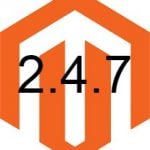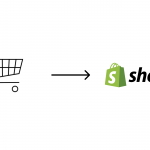The Best Node.js Hosting Solutions

Today I am going to talk about Node.js – an open source environment optimised for easy building. Since Node.js is going to be among key coding trends of the nearest future, I’ve decided to describe this platform through a series of blog posts on Firebear.
Being built on Chrome’s JavaScript runtime, Node.js offers the ability to create scalable network apps with high performance. Due to an event-driven, non-blocking I/O model, the platform is both lightweight and efficient. Thus, Node.js is a perfect solution for data-intensive apps that run across distributed devices in real time. Of course, Node.js requires a hosting environment, that’s why I’ve created this list of hosting solutions optimized for the platform.

Table of contents
OpenShift Online
With OpenShift Online, you will be able to run your Node.js apps in a cloud for free. The hosting platform is based on Red Hat and offers the following benefits:
-
OpenShift Online is an open source solution which utilizes standardized components. It means that all your Node.js apps will be portable and scalable. Moreover, you will be able to eliminate all lock-ins.
-
Another key benefit of the platform is end-to-end Node.js support, which is responsible for using all possible frameworks and databases while deploying and running your applications.
-
Furthermore, there is an ability to manage your server, check logs, as well as test quick changes via a command line with the aid of SSH access.
-
It is also necessary to mention the auto scaling feature. It enables your apps to handle changing loads by automatically allocating necessary resources.

OpenShift Online offers the following pricing plans: Free and Silver. The first one offers free Node.js hosting for up to 3 apps; rhcloud.com subdomains; and privat database instances. With Silver Plan, you will receive a professional Red Hat supports, upgraded base storage, and other premium features. Both plans include autoscaling; 3 small gears free of charge; Red Hat system administration; custom domains. Visit the official OpenShift website for a complete list of features, other pricing plans and the ‘getting started’ tutorial.
Google Cloud Platform
Google Cloud Platform is a cheap Node.js hosting solution that Google uses for Search, YouTube, and other end-user products. The environment can be utilized for building simple websites, as well as complex apps. Despite it consists of different products, each component of Google Cloud Platform has a web interface, a REST API, and a CLI tool.

The default configuration of Google Cloud Platform is already optimized for running an environment for Node.js apps, but you can easily customize your current configuration later. It will cost you to $4.49 a month to use the platform with default features and settings. Additionally, you can check a free trial.
DigiTalOcean
If you are looking for a simple and reliable solution, pay attention to DigiTalOcean, as it offers one-click installation and deployment of Node.js on an SSD cloud server. The whole procedure takes just 55 seconds. As a result, you can build fast and scalable network apps. The simplicity of DigiTalOcean goes even further: to start the work, you only need to choose the size and location of a droplet and click just one button.

Pricing plans of this Node.js hosting start from $5 a month (1 CPU + 512MB; 20GB SSD; 1TB transfer). The most expensive solution is $80 per month (4 CPU + 8 GB; 80GB SSD; 5TB transfer). Click the link below to get more information about DigiTalOcean
Linode
Linode is not as cheap as DigiTalOcean is, but it is also extremely simple and scalable. Besides, it provides lots of competitive advantages, such as the power of native SSDs, fast processing, and a 40Gbps network; helpful guides and a comprehensive documentation; powerful API; deployment StackScripts; a user friendly CLI tool; top notch customer support; and 99.9% uptime guarantee.

The cheapest pricing plan – $10/month – includes 1GB RAM; 1 CPU; 24GB SSD; 2TB transfer. Check the official website for additional features and further information.
Modulus
Another brilliant Node.js cloud hosting solution is Modulus. It offers custom domains, integration with MongoDB, multiple node versions, support for websockets, custom SSL certificates, etc. It is also worth mentioning that Modulus comes with a CLI tool and a dashboard, so you can easily manage all your Node.js apps and projects. Moreover, they can be integrated with all Progress products via APIs. Please note that Modulus relies on the amount of services you use to charge monthly payments.

dotCloud
dotCloud is a remarkable PaaS solution for your Node.js development. Easy database integration and app deployment; npm dependencies via package.json, a CLI tool, and websocket support are among its prominent features. There are also several servers to choose from and a load balancing monitoring feature that allows zero downtime. dotCloud simplifies development by allowing you to focus on code, while everything else is handled by the platform.

Note that it’s not a cheap Node.js hosting, as pricing starts from $24 a month. Tiny Plan includes three 128MB containers; 3 vCPUs; 384MB RAM; as well as other features, though you can easily reduce the price tag by choosing less containers, CPUs and RAM.
Microsoft Azure
Azure is one of the most complex platforms in this digest. Being a free Node.js hosting, it also supports the broadest selection of programming languages, frameworks, operating systems, tools, devices, and databases. Due to Docker integration, you will be able to run Linux containers. Besides Node.js projects, there will be an opportunity to build apps with Python, JavaScript, .NET, Java, PHP, etc. Moreover, Microsoft Azure is equally good for iOS, Android, and Windows projects.

In addition to free plan, there is a cheap node.js shared hosting, as well as several more robust solutions.
Heroku
Heroku is another perfect environment for building applications. Additionally to Node.js, it supports Ruby, Python, Java, PHP, and Go. Since Heroku offers the ability to manage environment-specific configurations apart from source code, you get great safety and portability of all your projects. There is also an extra level of simplification provided with Heroku Elements, which include different tools, add-ons, buildpacks, components and services.

There is a free cloud sandbox ideal for your experiments, as well as more robust paid solutions. The cheapest plan starts from $7 a month and offers 10 process types and 512MB RAM.
Other Node.js hosting solutions
These were some of the best Node.js hosting solutions, but there are still lots of other platforms and environments available on the Internet. I recommend you to check this list on GitHub. All solutions, mentioned there, are divided into 4 groups: Managed; Self-Managed Preconfigured; Self-Managed; and DIY Platforms. Every hosting solution is briefly described or at least has a link to its official website, so you can easily choose a platform that suits your business needs.










